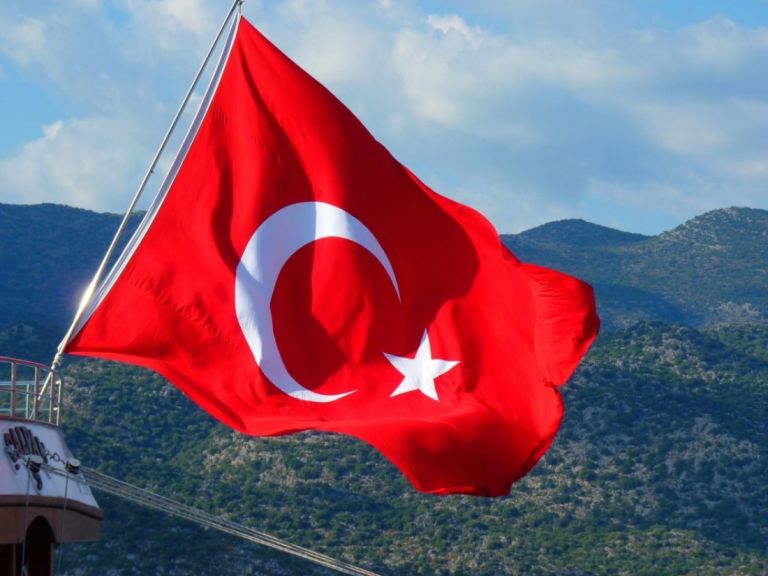Ankara Sends Clear Signals Over Cables, Surveys, and Maritime Zones

Πηγή Φωτογραφίας: pixabay//Ankara Sends Clear Signals Over Cables, Surveys, and Maritime Zones
Turkey Blocks Undersea Cable Project in Disputed Waters
Turkey has halted research activities conducted by the vessel S/V Fugro Gauss, sailing under the Gibraltar flag, off the southern coast of Cyprus. The ship was operating under a Larnaca NAVTEX (237/25), conducting undersea surveys for the East to Med Corridor (EMC) — a major undersea fiber optic cable project linking Saudi Arabia to Europe via Greece.
Ankara claimed that the vessel entered what it considers to be Turkey’s continental shelf without prior authorization. A counter-NAVTEX was issued from the Turkish naval station in Antalya (0739/25), and a Turkish frigate (Gabya-class)was dispatched to the area to reinforce the message.
The Turkish Ministry of National Defense stated:
“We are closely monitoring our continental shelf and do not allow unauthorized activities or projects — such as the Great Sea Interconnector — that ignore our country’s rights.”
This is seen as a direct warning against the Greece–Cyprus electricity interconnection project (GSI), which is expected to resume progress in September 2025 after a pause since July 2024.
What Is the EMC Project?
The East to Med Corridor (EMC) is a $850 million telecommunications project aiming to connect Saudi Arabia with France and Italy, via undersea fiber cables passing through the Exclusive Economic Zones (EEZs) of Cyprus and Greece.
The Public Power Corporation (PPC) of Greece holds a 20% stake in the project, while Saudi Arabia is the majority shareholder. Notably, Cyprus’ telecom provider (CYTA) had been part of the EMC consortium but withdrew.
The cables are being manufactured and laid by two firms, including Alcatel Submarine Networks (ASN), a subsidiary of French giant NEXANS, which is also involved in the Great Sea Interconnector — another reason why Ankara is escalating its opposition.
Turkish Pressure Amid Broader Regional Tensions
Turkey’s move is interpreted as a strategic signal to both Western allies and regional players, aiming to stake its claim in the emerging energy and data corridors of the Eastern Mediterranean.
It also serves as a direct challenge to Athens, just as Greece prepares to relaunch the stalled GSI project — a plan for electricity interconnection between Greece and Cyprus, strongly supported by the EU.
This is not the first time Turkey has intervened against exploration activities in areas within Cyprus’ EEZ, which it does not recognize.
Greek Maritime Zone Map Triggers Reactions
The Greek Marine Spatial Planning (MSP) map, published in April 2025, has sparked diplomatic backlash from several neighboring countries.
- Egypt issued a note verbale on July 27 to the Greek embassy in Cairo, expressing clear objections to Athens’ interpretation of potential maritime boundaries in the region.
- Libya had previously objected via the United Nations, while Turkey maintains its own alternative maritime maps.
- Albania is the only bordering country with which Greece has an unresolved maritime issue but has not (yet) issued any formal protest.
The map reflects Greece’s official interpretation of its maximum potential EEZ boundaries and is now being used as a diplomatic tool in negotiations.
Greek Diplomatic Outreach and Cautious Strategy
In response to Libya’s objections, Greece has formally proposed a technical dialogue. A diplomatic note delivered to Tripoli outlined the composition of the Greek committee for maritime talks, led by Deputy FM Alexandra Papadopoulou.
Athens has also expressed interest in engaging with Benghazi, recognizing the bifurcated nature of Libya’s political institutions.
Despite the outreach, Greek officials remain cautious, aware that both Tripoli and Benghazi are courting multiple regional actors, including Turkey.
A recent trilateral meeting in Istanbul involving Turkey, Libya (Tripoli), and Italy further highlighted the fragility of regional alliances in the Eastern Mediterranean.
Strategic Waters, Strategic Messages
Turkey’s latest interference in the EMC project, combined with vocal opposition to the GSI, underscores Ankara’s determination to play a central role in regional infrastructure development, whether in energy or digital connectivity.
Greece, meanwhile, faces growing diplomatic and geopolitical pressure as it navigates contested maritime claims and seeks to defend its sovereign rights through international partnerships and strategic diplomacy.
Source: pagenews.gr
Διαβάστε όλες τις τελευταίες Ειδήσεις από την Ελλάδα και τον Κόσμο






Το σχόλιο σας